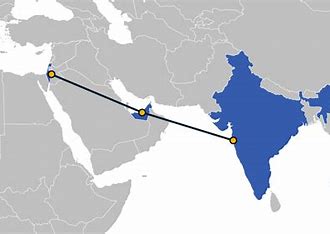In the 21st century, lithium-ion batteries have become one of the most important batteries that exist. Their efficiency, longer life, and rechargeability have made them the go-to option to power handheld electronic devices, facilitating the rise of not only smartphones and sleeker laptops but also electric vehicles. However, Swedish developers Northvolt have recently made a breakthrough in a new kind of battery – the sodium-ion battery – which could have global implications for the electronics industry.
Northvolt is proud to add sodium-ion to its cell portfolio, enabling the expansion of cost-efficient and sustainable energy storage systems worldwide.https://t.co/NKIYd6OWr7
— Northvolt (@northvolt) November 21, 2023
Both lithium-ion and sodium-ion batteries have been a concept since the 1970s, though commercialization proved difficult for both. This changed in the ’90s, when lithium-ion batteries became a viable power storage solution. However, following the 2010s boom in handheld tech, lithium-ion’s raw materials started to get more expensive. As such, sodium-ion is now being pursued by companies like Northvolt.
The importance of these batteries can’t be understated. As every country rapidly digitizes its economy and workforce, batteries power crucial devices that we use to communicate and access services like the internet. The internet itself houses many government, work, and entertainment industries that survive off lithium-ion, from servers to smartphones. Take an industry like iGaming, a popular way of playing games online that is commonly accessed through hardware that uses lithium-ion to function. From playing online bingo to accessing international work opportunities, the batteries we use shape the digital world and how easily we can access it.
Lithium-ion batteries aren’t going anywhere yet, but Northvolt’s latest innovation in sodium-ion batteries may present a workable alternative. This isn’t just great for pushing the envelope of lithium-free energy storage, it could also deflate lithium-ion prices by taking the pressure off mining and manufacturing demand.
Having only been founded in 2015, Northvolt is one of the few players in European battery research and manufacturing. As such, the start-up has enjoyed backing from influential businesses like Volkswagen and Goldman Sachs. They have previously made headlines for creating one of Europe’s first giga-factories in Germany, with further expansion in Canada.
With this context, Northvolt’s breakthrough represents a lot more than technological innovation. It is one of Europe’s foremost homegrown battery manufacturing operations in a market that has been dominated by Asia – specifically China’s lithium industry. Due to this, their continued success has geopolitical benefits alongside the typical economic concerns.
As for what that breakthrough entails – Northvolt’s new sodium-ion battery uses no lithium, cobalt, or nickel. Referred to as critical metals/minerals, these are known to be subject to volatile prices because demand vastly outnumbers supply. Currently, Northvolt is considering electric vehicles to be the primary use case of its new battery design.
Co-founder Peter Carlsson is ambitious about the new battery, saying that it could provide powerful yet cost-effective batteries to markets in India and other regions like Africa. Specifically, smaller and lower-cost cars and scooters may benefit immensely from sodium-ion viability. He also foresees that their order book – which is predominantly lithium-ion EV battery orders – could be filled with sodium-ion alternatives within a decade.
Source: Unsplash
When it comes to the technical details, sodium-ion has certain advantages over lithium-ion. They work better at temperature extremes, both high and low temperatures, whereas lithium-ion batteries can overheat, reducing longevity, and will fail to transfer charge at cold temps. The new sodium-ion battery reaches the 160-watt-hours per kilogram threshold, meaning it can go toe-to-toe with some lithium-ion products.
The secret ingredient to these new sodium-ion batteries is Prussian blue – a dye that allowed Northvolt to sidestep the use of metal-containing oxides like nickel. The use of dye had been considered by the late lithium-ion inventor John Goodenough, who was awarded a Nobel Prize for chemistry in 2019. However, tech advancements and market conditions have only recently made it a viable way to avoid using critical metals.
While early in the adoption process, Northvolt’s sodium-ion battery may prove to be a powerful lithium-ion alternative. At present, it seems that nations like India stand to benefit from cheaper sodium-ion solutions that avoid costly, and growing, lithium-ion prices.















